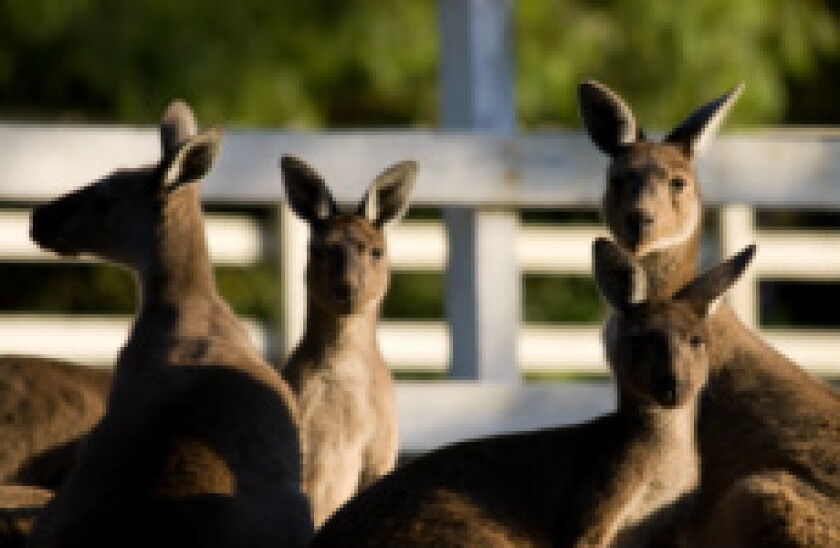Based in China's Guangdong Province, petrochemicals supplier Premiere Eastern Energy listed on the Australian exchange last week after raising a small A$3.5m ($2.73m) from its IPO, giving it a market capitalisation of A$184m.
Although the transaction was tiny, it speaks volumes about Chinese issuers seeking greener pastures overseas. The trade made Premiere the first Chinese entity to list on the ASX so far this year, following what has so far been just sporadic interest to list Down Under.
For instance, just one Chinese company listed in Australia in 2014 to raise a paltry $4m, according to Dealogic, which only has data on deals of more than $4m. In 2013 however, two businesses sold shares on the ASX to raise around $23m collectively.
But this year is off to a good start already. Companies such as Sino Rare Precious Metals, which owns Chinese firm Western Xinxing Rare Metal, and Tinho Union Group (Australia) — which aims to provide retail and corporate travel services in China — are both expected to list their shares on the ASX in the first quarter.
One reason some of these small companies are gunning for the Australian exchange is due to slightly less stringent requirements to conduct an IPO there, reckon ECM bankers.
“Australia is not as strict as Hong Kong or Singapore,” said a bank’s head of ECM for Australia. “No profit record is required and there’s also no minimum float requirement, which makes the ability to list more relaxed. On the other hand, Hong Kong and Singapore are quite paternalistic in their attitude towards IPOs.”
For instance, Hong Kong-listed companies have to maintain a minimum free float of 25%, while in Singapore that figure is 12%-25%. This is not something that applies to ASX-listed businesses unless they want to be included in the country’s indices.
Similarly, the Asian exchanges demand a profitable track record for companies considering listing, while those eyeing Australia don’t need to show profits. They will however have to go through a test to check their net asset value levels — vastly easier to comply with than profitability requirements, say bankers.
Wooing the Chinese
Australia’s obvious appeal over some of its Asian counterparts is something that the ASX has been actively trying to leverage. It is understood to have consistently sent members of its team to China to hold meetings with heads of companies in a bid to encourage them to list in Australia, say bankers.
“There’s been a lot of talk about bringing [Chinese] companies to list here,” said an Australia-based director of ECM. “And there’s no real reason why they will not be well received. That’s why the ASX has been doing things like hosting conventions and workshops to push people to come here.”
The ASX may be doing its bit to boost activity in its exchange, but it has made little traction in bringing in big Chinese businesses so far. One reason companies have not been quick to capitalise on looser ASX restrictions comes down to their business operations, say bankers.
Bringing a business that has little or no operation in Australia is often very tricky, reckons the director of ECM. “For a fund manager to like and understand that kind of a business will be difficult,” he said. “The question they will ask is why the company is not listing closer to home.”
Moreover, language and communication with Chinese management teams also poses a barrier to the ease of doing business, say bankers.
Corporate governance key
“Australia is a mature, sophisticated and pretty cynical market,” said the head of ECM. “Investors tend to question people’s motivation to list. If assets are here, then it makes sense of course. But investors will question foreign assets and that’s why it tends to be smaller-end names that list here, rather than the mainstream companies.”
Small and mid-cap businesses, usually without operations in Australia, list by raising just a tiny amount from the market. Their trades are often led by boutique houses or small brokers, are not underwritten, and are sold mainly to high and ultra-high net worth investors rather than bigger fund managers and investors, say bankers.
“Their risk profile is just very high,” added the head of ECM. “Mainstream investors won’t touch it because due diligence requirements for them are just pretty high.”
A large chunk of the investor base in Australia is pension funds, he added, which are more comfortable putting their money into domestic and blue-chip names rather than obscure Chinese stocks.
Right names, right response
That’s not to say that the market is not welcoming to credible names. Many South African companies, largely those in the resources sector, have chosen to list in Australia, as have businesses from New Zealand.
Mining giants such as Rio Tinto and BHP Billiton have their stocks listed on the ASX, as have big media names like News Corp.
“There are no issues around Australian investors buying stocks in companies with offshore assets,” reckons the ECM director. “The marker is open for activity. It just needs to be the right business with a decent size, good operating history and with at least a couple of peers in Australia.”

